[Techie Tuesday] Here are the top 10 tech leaders we celebrated this year
In an in-depth account, Techie Tuesday captures the personal and professional journey of the techies and their tryst with technology.
Call them geeks or mouse potatoes, but techies are transforming the world with their innovation. From Apple co-founder Steve Jobs, who was considered as the grandmaster of technology, to Microsoft’s Bill gates, tech leaders have, time and again, revolutionised the way we operate.
YourStory’s Techie Tuesdays column celebrates and tells the stories of those individuals who pushed their limits and the existing presumptions about how a problem can or cannot be solved. We are talking about software developers, tech architects, and product owners who really proved that technology is more than just a mere tool.
This year, we interacted with a diverse set of technological architects who built revolutionary, intuitive, and user-friendly products that are about both convenience and commerce. From data scientists and engineering heads to CTOs, we saw them all.
Here are 10 techies that you loved to read about this year.

1. Shantanu Bhattacharya, Data Scientist, Locus
“The best data scientists are the ones who start with a problem to solve and use data only as a tool,” says Shantanu Bhattacharya, a data scientist at Locus.sh.
He believes that the true north of this ‘science’ lies in its nature of extreme flexibility. Thirty-six-year-old Shantanu heads the startup’s ambitious geocoding project, using a combination of natural language processing (NLP) and machine learning (ML) algorithms like recurrent neural networks (RNN) and different statistical methods.
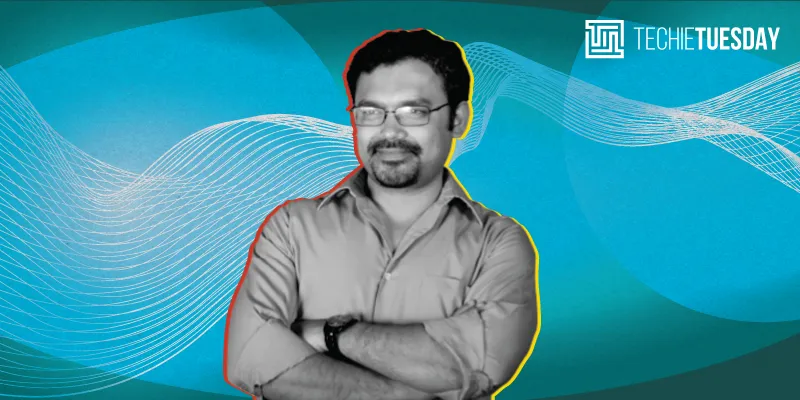
Shantanu Bhattacharya, Data Scientist, Locus.sh
By using these methods, he interprets human written addresses and converts them into accessible coordinates understandable by a computer.
Before joining Locus.sh, Shantanu made several personal pit-stops with his career - from Biology and Math to Physics and Chemistry. The intersection of these basic sciences eventually led him to work as a Data Scientist with the logistics startup.
2. Mukund Jha, Co-founder and CTO, Dunzo
“Something is going wrong somewhere and there are too many variables on how to zero in on what the problem is. That is what makes debugging fun,” says Mukund Jha, the co-founder and CTO of Dunzo.
At Dunzo, Chandigarh-born Mukund has been responsible for taking the product from its initial WhatsApp days to a complete working prototype, to what it is today. He closely looks at every possible variable behind getting a task done with least human intervention.
1566210615008.png?fm=png&auto=format)
Mukund Jha, Co-founder and CTO, Dunzo
From fetching something you forgot at home to asking for a pickup and drop, Dunzo makes use of artificial intelligence to manage customers’ tasks.
Despite being the architect and lead technologist behind a company like Dunzo, Mukund still spends a majority of his time debugging, which he sees as a puzzle waiting to be solved. He further says that a healthy mix of impatience and laziness can go a long way for an engineer.
“It is only then you want to keep building to make life around you easier and simpler,” says Mukund.
Mukund’s interest in building something to turn things around was a lead-up to something bigger – Dunzo, a hyperlocal delivery platform, which is the first company to be backed by Google.
3. Sachin Shenoy, Co-founder and CTO, HealthifyMe
A self-proclaimed rebel in school, Kozhikode-born Sachin saw his knack for technology through electronics.
Sachin’s tryst with computers began at 16 when his father, a paint manufacturing businessman, purchased a computer to keep his paperwork and financials in order. This provided Sachin, a teenager then, the perfect opportunity to spend long hours, fascinated, in front of the screen, where he discovered the world of programming: BASIC first, then Pascal, followed by C and C++.

Sachin Shenoy, Co-founder and CTO, HealthifyMe
Having worked with the likes of HCL Technologies and Google, healthcare was something Sachin believed needed disruption with technology and AI.
After spending a year in understanding the Indian taste palate and food preferences, he went on to build the right nutrition algorithms for HealthifyMe.
Today, the startup’s AI assistant Ria uses the learnings obtained from HealthifyMe’s tracked meals and message exchanges between coaches and clients, and provides personalised answers to users’ queries.
4. Prashant Malik, Co-creator of Apache Cassandra, ex-Facebook and Microsoft
Prashant Malik wrote Apache Cassandra in Java, along with Avinash Lakshman 11 years ago. For the uninitiated, Apache Cassandra is one of the world's largest NoSQL database management systems used today.
Prashant also built Facebook Messenger about 13 years ago. Facebook faced a major obstacle in managing its massive scale of users, and the company had to figure out a way to accommodate a large number of users on its database.

Prashant Malik
Naturally, the problem is translated across giants like Instagram, Netflix, and Apple, which need mammoth database management systems. Cassandra is now the core database upon which these companies run today.
Speaking of his Facebook gig, Prashant said, “After meeting Mark Zuckerberg and the core team at Facebook, I realised the dream they had was infectious. The first thing that hit me when I met Mark was he is too young. And then there were this bunch of young guys who were dreaming big. They were talking about Facebook being ubiquitous and everyone in the world using it. It was hard to first take them seriously, but when I started logically debating Mark and the other guys, it hit me that these guys are really dreaming big, and have a big picture. I like big dreams, and that is what attracted me to Facebook.”
5. Sanjeev Barnwal, CTO, Meesho
Meesho is a mobile-first social commerce platform for small businesses that use WhatsApp and Facebook to keep in touch with customers.
For Sanjeev Barnwal, the CTO of Meesho, building great tech still remains to be a passion. From a small town in Jharkhand to IIT-Delhi, then Tokyo and starting up in India, Sanjeev has witnessed a glorifying ride in his career.
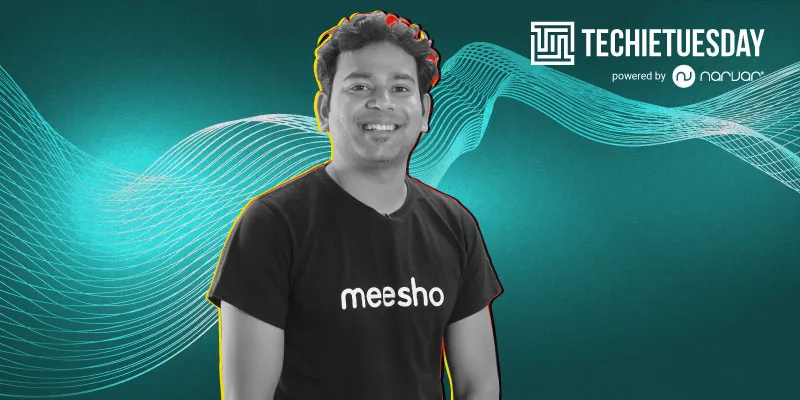
Sanjeev Barnwal, Co-Founder and CTO, Meesho
For Meesho, he built the backend using PHP in the initial stages. It was during this time he had his first hard learning as a tech co-founder - building something fast and not for scale, especially in the early stages. He says the programming language does not matter, and he was comfortable with PHP.
“In the initial days, it is important to get the minimum viable product (MVP) out quickly. You have to be okay with your idea changing. You cannot fall in love with it. This is an extremely hard pill for a techie to swallow as we techies have the habit of putting in a lot of effort to build the perfect software,” said Sanjeev.
6. Ramki Gaddipati, Co-founder and CTO, Zeta
In his journey as a coder and a tech lead, 38-year-old Ramki Gaddipati has possibly developed and created products way before any successful startups even conceptualised the idea.
First, he built a mobile-operated home automation system in 2004, and in the next four years, he went on to build a B2B2C healthtech platform that reminded patients of their medicine timings. He also developed a school management platform.
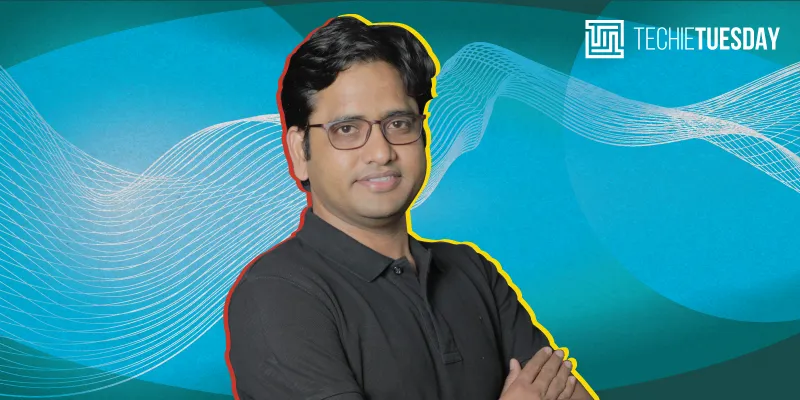
Ramki Gaddipati, Cofounder and CTO of Zeta
Despite being the CTO of a company today, Ramki calls himself a reluctant engineer. He says he always wanted to be a doctor, and that engineering happened by chance.
When asked what he really likes about engineering and having to code, he says, “If you ask an artist what they love about art, they will say it is about representing immediately what’s in one’s mind. Computer programming is similar, you don’t need an external dependence to validate it. You think, create, and validate - the entire loop is in your hand and that is super powerful.”
7. Vaibhav Khandelwal, Co-founder and CTO, Shadowfax
As the co-founder and CTO of B2B on-demand delivery startup Shadowfax, Vaibhav Khandelwal now codes only during the weekends. But his journey began by coding 24/7. He has since then helped found and build Shadowfax, an on-demand last-mile logistics network that offers tech-enabled, one-stop delivery solutions.
He says, “It is never about what you can code, but what you can build and what that can do. It is about how much you own something and work towards changing the status quo.”

Vaibhav Khandelwal
Vaibhav and Abhishek Bansal, the CEO, brought in their love for JR Tolkien’s work, Lord of the Rings (LOTR), in building the product at Shadowfax. The name refers to the character of Gandalf’s horse. Interestingly, all servers and databases have LOTR references.
“One of the services, Rivendell, is a knowledge repository and the core app is Gandalf, who rides Shadowfax,” he explains.
There is a reason for bringing in the connection. Vaibhav believes it is important to have a centralised brain that can design systems to pass information to the right people.
8. Shashank Kumar, CTO and Co-founder, Razorpay
In 2013, India did not have a homegrown payments solution for small businesses while US-based PayPal was struggling with regulations. All that changed in 2013 when two IIT-Roorkee graduates founded Razorpay, the country’s first payment gateway for startups and small businesses.

"Payments is a very technical product, and we had to be top-notch. When I wrote the maiden platform, I wrote it twice and trashed it. The third time, it started to work and move ahead,” Shashank spoke to YourStory on how challenging it could get to build a stack like RazorPay’s.
He was instrumental in orchestrating this product, which is now a full-stack converged payments solution. This startup has revolutionised online payments by providing clean, developer-friendly APIs, and hassle-free integration.
9. Rahul Chari, Co-founder and CTO, PhonePe
A typical startup hustle culture encourages one to build something as early as they can, iterate and fine-tune it, run towards hitting hockey-stick growth, and then figure out how to rebuild the product for scale. But PhonePe’s CTO and co-founder Rahul Chari believes otherwise.
Born out of Flipkart and with sufficient access to capital, PhonePe had the luxury to build its systems right. With that possibility, Rahul did not want to rush into building the platform.
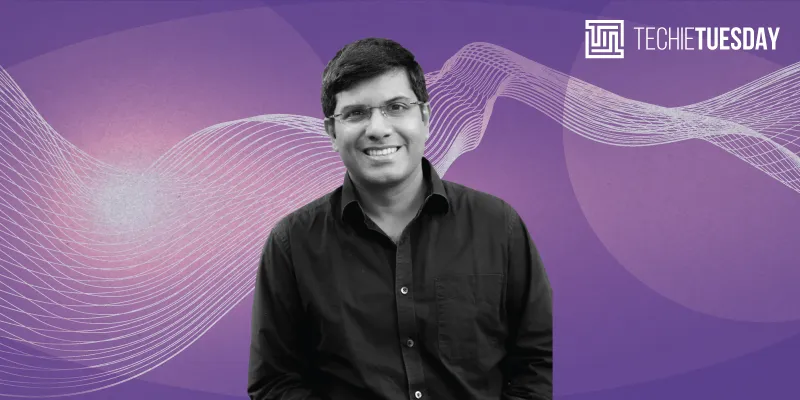
Rahul Chari, Founder and CTO of PhonePe.
“If you have the luxury to build it out right, win it, and make it a success, there is no point trying to be scrappy about your core systems. Even if it takes time, it is the right thing to do. The goal should be to keep your platform ahead of the curve. If you are behind the curve, you will always play catch up and increase tech-debt,” Rahul says.
Today, the three-time entrepreneur has over 18 years of experience in storage visualisation, content management, and supply chain technology.
10. Jennifer Anderson, Senior Director of Engineering at Uber
“That feeling of seeing your code work is something I will never forget. It was then I realised - the computer does what you tell it to do. It doesn’t do what you mean for it to do. The trick is to be very precise in your instructions,” says Jennifer.
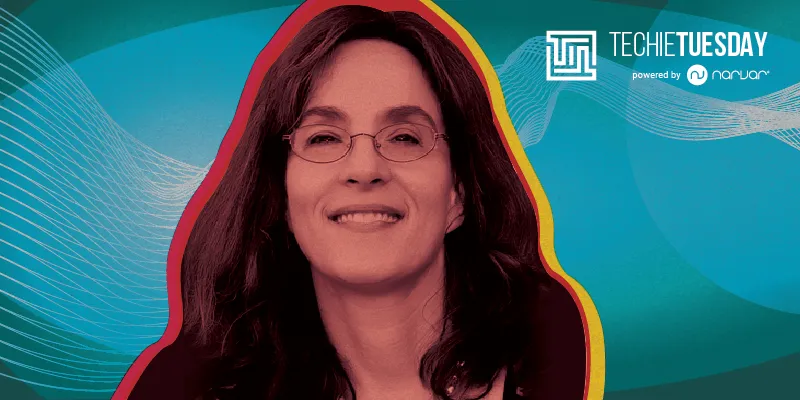
Jennifer Anderson, Senior Director of Engineering - Product Platform Uber
The senior director of engineering for the product platform at Uber, she says her love for technology began when her father, an electrical engineer, would bring home the latest piece of technology. The natural synergy between mathematics and technology got the young South Californian girl hooked.
Today, Jennifer is responsible for all Machine Learning (ML), data analytics, customer care, marketing and communications platforms at Uber.
(Edited by Megha Reddy)


![[Techie Tuesday] Here are the top 10 tech leaders we celebrated this year](https://images.yourstory.com/cs/2/730b50702d6c11e9aa979329348d4c3e/techietuesday--1577098660626.png?mode=crop&crop=faces&ar=2%3A1&format=auto&w=1920&q=75)
![[Techie Tuesday] From genetics to data science: Shantanu Bhattacharyya's many pit stops before arriving at AI logistics startup Locus](https://images.yourstory.com/cs/2/730b5070-2d6c-11e9-aa97-9329348d4c3e/Techie-tuesday-Shantanu-800X4001561994258371.png?fm=png&auto=format&h=100&w=100&crop=entropy&fit=crop)
![[Techie Tuesday] From working on Google’s search platform to co-founding Dunzo - the journey of Mukund Jha](https://images.yourstory.com/cs/2/a9efa9c0-2dd9-11e9-adc5-2d913c55075e/techi-tuesday_(800x400)1566210615008.png?fm=png&auto=format&h=100&w=100&crop=entropy&fit=crop)
![[Techie Tuesday] From working for free at HCL to writing code that caught Google’s eye, and then building AI in healthcare: HealthifyMe’s Sachin Shenoy’s journey](https://images.yourstory.com/cs/2/a9efa9c02dd911e9adc52d913c55075e/techietuesday800x4001573469157178png?fm=png&auto=format&h=100&w=100&crop=entropy&fit=crop)
![[Techie Tuesday] Meet Prashant Malik, the man who co-built Cassandra, the database that powers Facebook, Instagram, Netflix, and Apple](https://images.yourstory.com/cs/2/a9efa9c02dd911e9adc52d913c55075e/Techietuesdayprashanth1572877594221png?fm=png&auto=format&h=100&w=100&crop=entropy&fit=crop)
![[Techie Tuesday] Sanjeev Barnwal of Facebook-backed Meesho has one advice for coders: ‘get out and meet the customer’](https://images.yourstory.com/cs/2/a9efa9c0-2dd9-11e9-adc5-2d913c55075e/Sanjeev_800_4001562586046701.jpg?fm=png&auto=format&h=100&w=100&crop=entropy&fit=crop)
![[Techie Tuesday] A reluctant engineer who went on to build tech products before their time - the story of Ramki Gaddipati of Zeta](https://images.yourstory.com/cs/2/3fb20ae0-2dc9-11e9-af58-c17e6cc3d915/Techie-tuesday-Ramki-Gaddipati-800x4001565613417336.png?fm=png&auto=format&h=100&w=100&crop=entropy&fit=crop)
![[Techie Tuesday] From building patented tech during an internship at Adobe to starting up Shadowfax, here’s Vaibhav Khandelwal’s journey](https://images.yourstory.com/cs/2/a9efa9c02dd911e9adc52d913c55075e/Techietuesdayvaibhav1575285707919png?fm=png&auto=format&h=100&w=100&crop=entropy&fit=crop)
![[Techie Tuesday] How Razorpay’s Shashank Kumar built India’s first online payment gateway for startups](https://images.yourstory.com/cs/2/730b5070-2d6c-11e9-aa97-9329348d4c3e/Shashank_Kumar_TechieTuesday-011564425520224.png?fm=png&auto=format&h=100&w=100&crop=entropy&fit=crop)
![[Techie Tuesday] PhonePe CTO Rahul Chari opted out of IIT to follow his heart and build a world-class product](https://images.yourstory.com/cs/2/3fb20ae02dc911e9af58c17e6cc3d915/RahulCharitechietuesday800x4001576480080084png?fm=png&auto=format&h=100&w=100&crop=entropy&fit=crop)
![[Techie Tuesday] Meet VMware’s first woman software engineer who now helms the tech platforms that power Uber](https://images.yourstory.com/cs/2/a9efa9c0-2dd9-11e9-adc5-2d913c55075e/Jenifer_Anderson_TechieTuesdays_2-011560176967790.png?fm=png&auto=format&h=100&w=100&crop=entropy&fit=crop)





